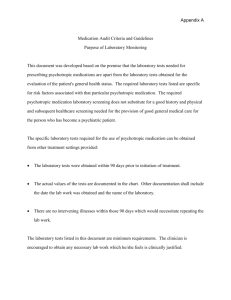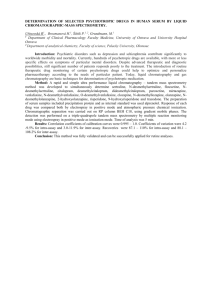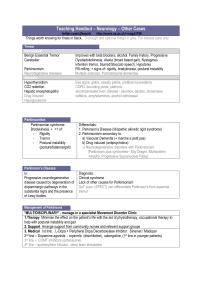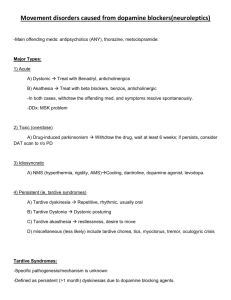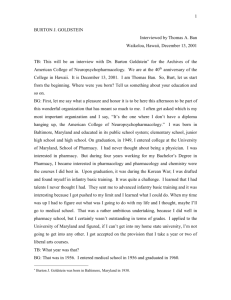Anticholinergic medications
advertisement
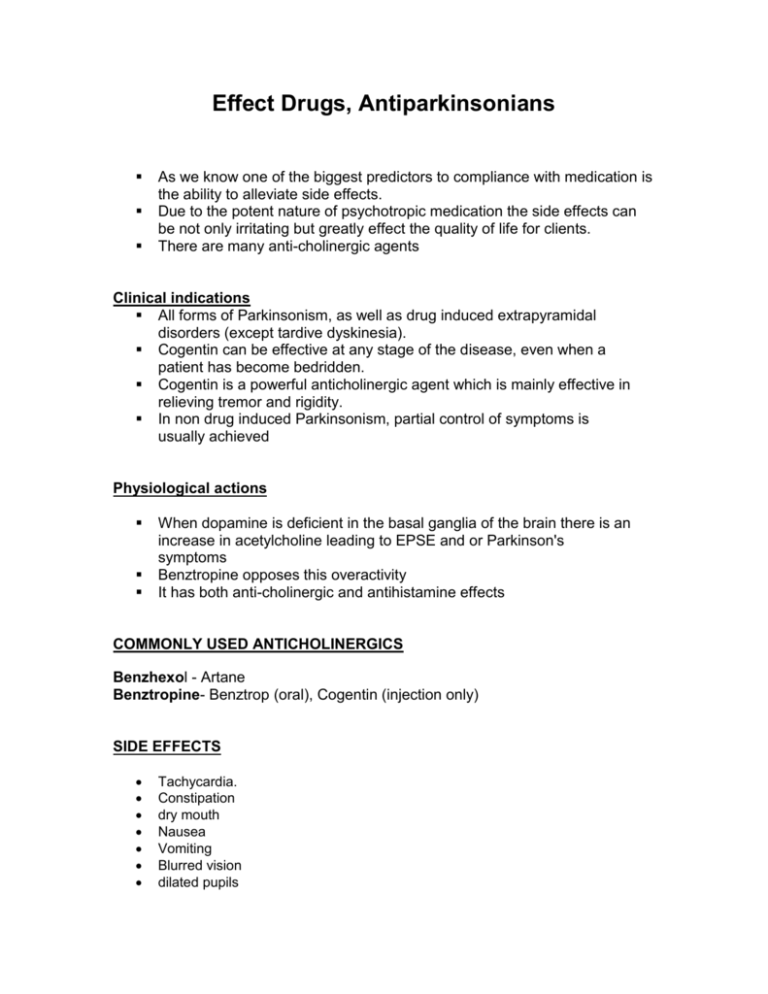
Effect Drugs, Antiparkinsonians As we know one of the biggest predictors to compliance with medication is the ability to alleviate side effects. Due to the potent nature of psychotropic medication the side effects can be not only irritating but greatly effect the quality of life for clients. There are many anti-cholinergic agents Clinical indications All forms of Parkinsonism, as well as drug induced extrapyramidal disorders (except tardive dyskinesia). Cogentin can be effective at any stage of the disease, even when a patient has become bedridden. Cogentin is a powerful anticholinergic agent which is mainly effective in relieving tremor and rigidity. In non drug induced Parkinsonism, partial control of symptoms is usually achieved Physiological actions When dopamine is deficient in the basal ganglia of the brain there is an increase in acetylcholine leading to EPSE and or Parkinson's symptoms Benztropine opposes this overactivity It has both anti-cholinergic and antihistamine effects COMMONLY USED ANTICHOLINERGICS Benzhexol - Artane Benztropine- Benztrop (oral), Cogentin (injection only) SIDE EFFECTS Tachycardia. Constipation dry mouth Nausea Vomiting Blurred vision dilated pupils Urinary retention dysuria allergic reaction, e.g. skin rash, Heat stroke, hyperthermia, fever PRECAUTIONS - If any of these symptoms are being experienced from the antipsychotics, the effects will be exaggerated. There is potential for abuse of these drugs. The taking of quantities greater than prescribed may induce an acute delirium state, worsening psychoses. Toxic Psychosis confusion, disorientation, memory impairment, visual hallucinations, exacerbation of pre-existing psychotic symptoms, nervousness, depression, listlessness, numbness in fingers - Patients should be advised to report fever, heat intolerance and gastrointestinal complaints promptly. Paralytic ileus has occurred in patients taking anticholinergic type antiparkinsonism drugs Due to its cumulative action, continued supervision is advisable. Administration conciderations When treating extrapyramidal disorders due to CNS drugs such as phenothiazines or reserpine, a dosage of 1 to 4 mg once or twice a day is recommended. Dosage should be varied to suit the needs of the patient. After one or two weeks of administration, Cogentin should be withdrawn to determine the continued need for medication. Usually the injection of Cogentin 1 to 2 mL quickly relieves acute dystonic reactions. Mental confusion and excitement may occur with large doses or in susceptible patients. Getting a ‘buzz’ Pregnancy risk factor C Excretion of breast milk unknown Common myths regarding Cogentin Cogentin is not indicated for; -Akathesia - Tardive dyskinsia( may make symptoms worse) References Therapeutic guidelines (2003) Psychotropic Therapeutic Guidelines Pty Ltd Version 5 Australian medicines handbook (2004) Australian medicines handbook Pty Ltd

